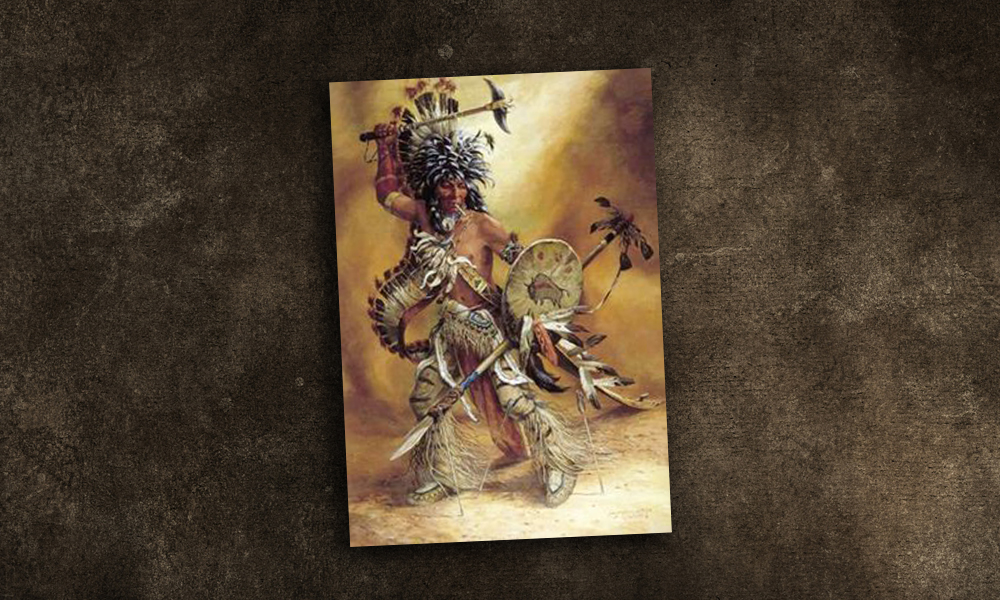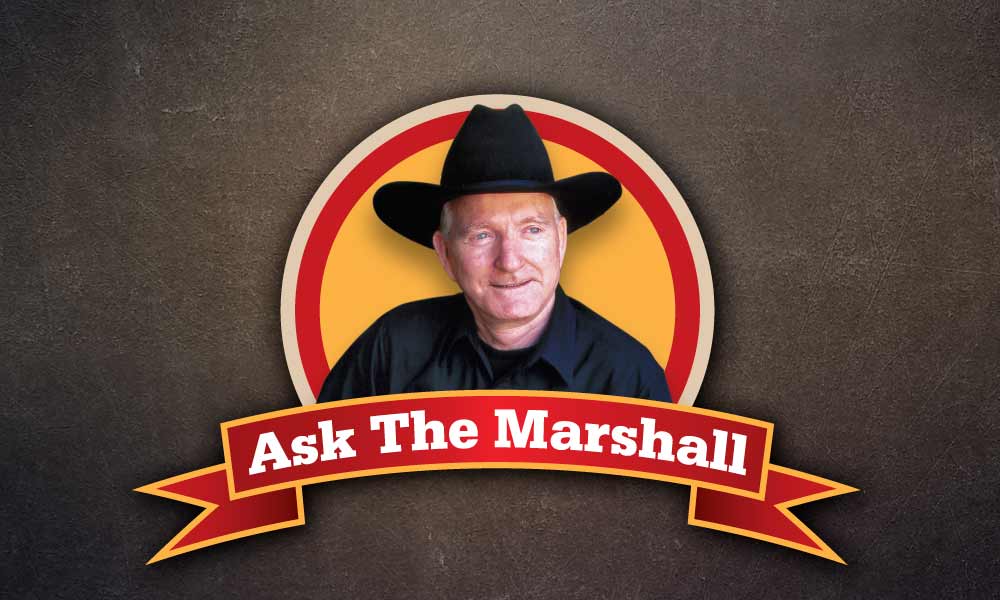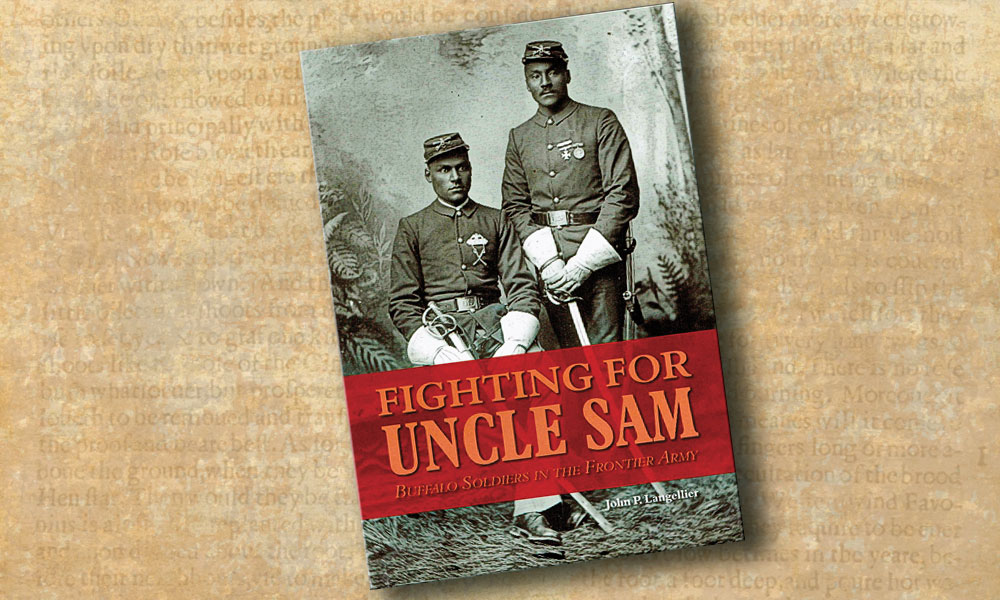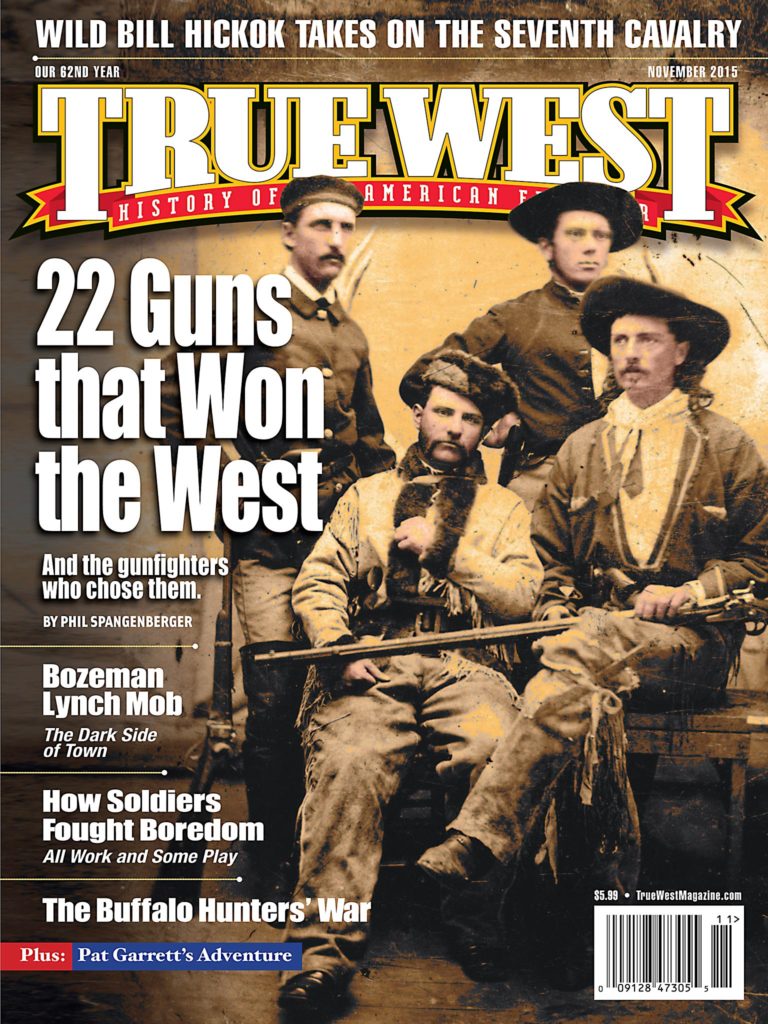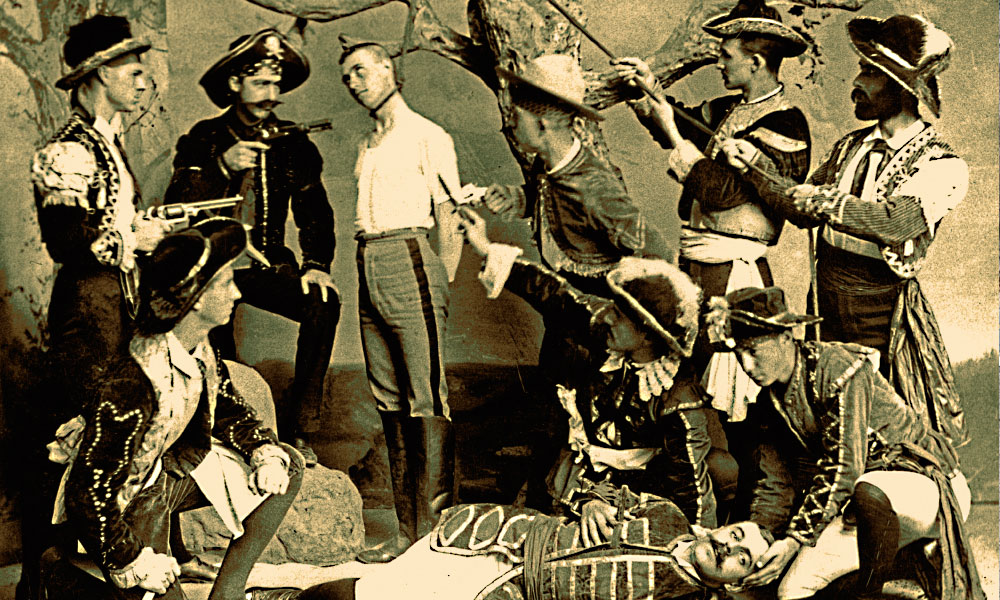
– Courtesy Leavenworth Public Library –
Troops serving in the frontier American West spent most of their time on routine matters, occasionally punctuated by hard campaigning, but they also found time to relax. The isolation of many frontier posts meant diversions depended on individual ingenuity to stave off the “long and tiresome” hours of off-duty time, as U.S. Army wife Frances Roe recorded, observing a “few who yawn and complain of the monotony of frontier life.”
These were the “stay-at-homes who” just sat “by their own fires day and day” letting “cobwebs gather in brain and lungs.” The vivacious Army bride contended they also were the “ones who have time to discover so many faults in others and become our garrison gossips.”
Athletic and energetic, Roe chastised these layabouts, believing they would do better to “take brisk rides on spirited horses in this wonderful air, and learn to shoot all sorts of guns,” which would allow them to “discover that a frontier post [could] furnish plenty of excitement.”
Another spouse of an Army officer, Ellen Biddle, followed the prescription to embrace the equestrian life—only to have her sorrel act up. Her mare “threw herself back on her haunches, standing almost straight….” Reacting rapidly, Ellen jumped from the rearing mount into her husband’s arms.
Mishaps aside, riding for pleasure was a frequent activity. Horses also could be run in races replete with “gay jockey costumes,” as Gen. George W. Custer’s wife, Elizabeth, recollected in her memoirs.
She recalled how the enlisted men came out to watch and cheer on their officers, although they were prohibited from wagers. This order was likely ignored. Gambling in many forms—including various card games, such as the ever popular Victorian favorite, Faro—was common among both soldiers and their superiors.
Horses also pulled sleighs in the winter or buckboards and other conveyances in warmer weather, for picnics or camping trips to the mountains, as an escape from summer heat or to hunt.
Hunting and fishing not only helped pass time, but the wild game also provided a supplement to the often limited fare available in mess halls or from other civilian and military supply sources. Outings might add antelope chops, catfish, prairie chicken, elk steaks or other items to the menu.
Despite the lack of many essential ingredients, the penchant for formal dining caused more than one wife of an Army officer to task her imagination. Memoirs abound referring to the lengths taken to provide a proper table. Roe prided herself on “knowing how to make more delicious little dishes out of nothing….”
The males who dined from makeshift menus did not seem to mind as another officer’s lady, Lydia Lane, observed: “I never objected to entertaining men; they were easily pleased, and willing to make due allowance for lack of variety of dainties in the larder.”
One colonel was an exception. Roe noted he was the bane of many hostesses because he was “fussy and finical [sic] about all things pertaining to the table,” and he made no effort to conceal his disdain for a meal not up to his high standards.
Outside this uniform-wearing gastronome, guests much appreciated the efforts of the ladies to work miracles, as medically retired cavalry captain Charles King portrayed in one of his popular novels. He painted a picture of an impressive meal to be hosted by the commanding officer’s wife (known in U.S. Army slang of the post-Civil War period by the abbreviation K.O.W.). The dialogue in anticipation of this fine spread ran:
“Of course they haven’t white wine here…! But there’s claret—famous claret, too, and the water in the big olla’s even cooler than the spring. They’ll have French dressing for the salad. They have tomato soup even you couldn’t growl at, and roast chicken, with real potatoes, and petits pois, and corn, and olives; then salad cool as the spring; then there’s to be such an omelette soufflée—and coffee…!”
Repasts regularly went hand in hand with dances, known as “hops” in the military parlance of the Victorian era. Improvisation also extended to the musical accompaniment for those who wanted to trip the light fantastic. History records numerous examples of soldiers converting an interior of some otherwise ordinary space into a suitable site. Crossed sabers, guidons, candles and other decorations enhanced the ambience. In turn, a guitar, banjo, fiddle and some other locally available instrument were pressed into service as an impromptu orchestra.
At larger posts that served as regimental headquarters, military bands could be enjoyed. When these organizations fell prey to government neglect and lack of funding, several enterprising commanders obtained money to support a band and, in some cases, aggressively recruited martial musicians right off the boat from Europe. The bands helped pass idle hours for both those in uniform and local civilians, helping to build morale and enhance good relations with the community.
Not all recreation revolved around wholesome pursuits. Men living in barracks, as Rudyard Kipling observed, were not all plaster saints. Some drank to excess, and this problem could be found from high-ranking officer to the lowest private. Drunkenness and desertion were the twin plagues of the frontier Army. Gambling, fighting and pursuing ladies of the night also caused consternation among commanders intent on maintaining discipline and health.
To discourage bad habits, commanders sought to encourage socially acceptable activities that would boost esprit. Sports offered one avenue. Track and field events, baseball, football and even tennis (at least for officers) numbered among the athletic options. Where water was found, boating and ice skating could be pursued.
If the out of doors was not one’s cup of tea, or when inclement weather prohibited enjoying nature, reading books in the post library or the privacy of quarters, reciting poetry, writing letters home, singing in the post chapel’s choir or a post musical group, escaping to another world via stereoscopes and even acting in or attending a play offered other means to while away the hours.
As Roe contended, life did not have to be gloomy or morose at a frontier Army post. Efforts to support a certain élan and to perpetuate the values soldiers and their wives brought with them from the East existed for those creative enough to fight boredom, an enemy faced more frequently by frontier soldiers than foes in the field.
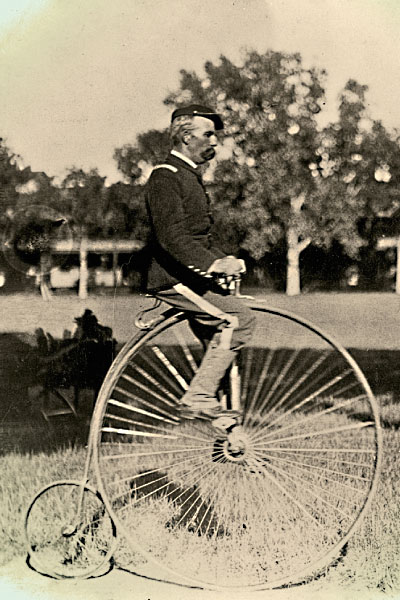
– Courtesy Robert L. Kothian Collection –
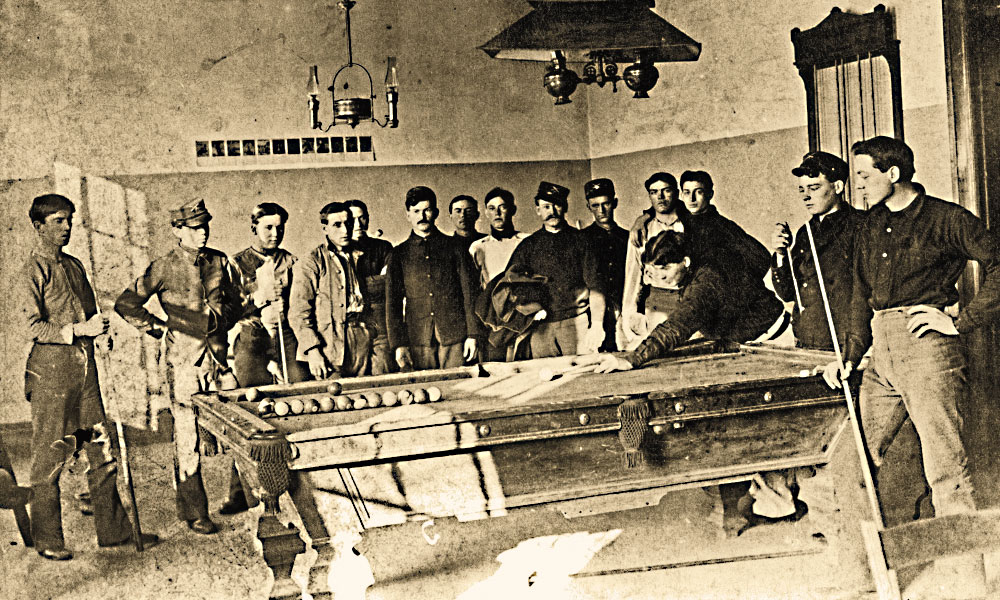
– Courtesy Frontier Army Museum at Fort Leavenworth, Kansas –
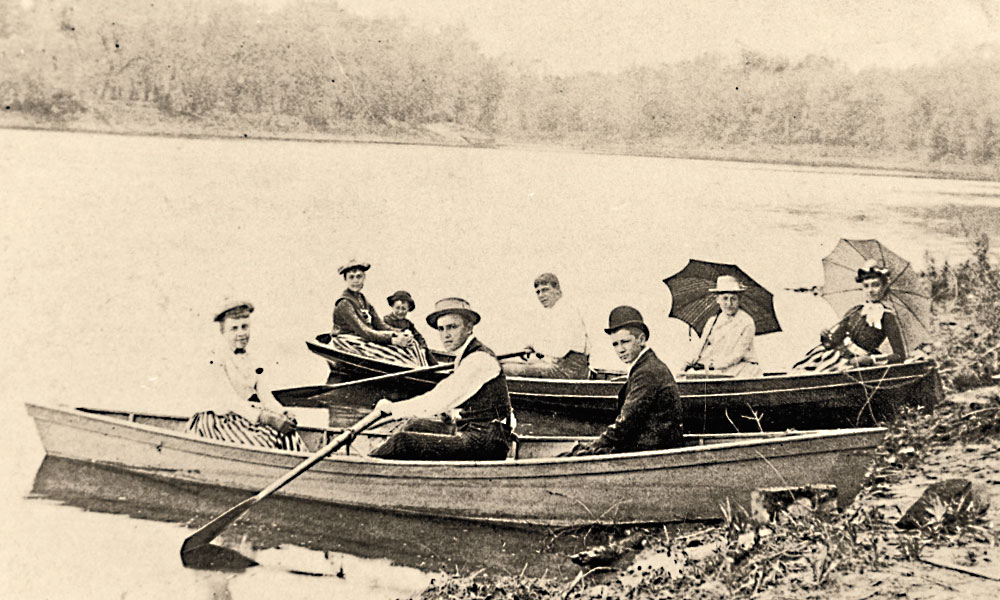
– Courtesy U.S. Army Military History Institute –
John Langellier received his PhD in military history from Kansas State University. After a 45-year career in public history, he retired in Tucson, Arizona, in 2015. He is the author of dozens of books, including Fighting for Uncle Sam: Blacks in the Frontier Army, due out in early 2016.


